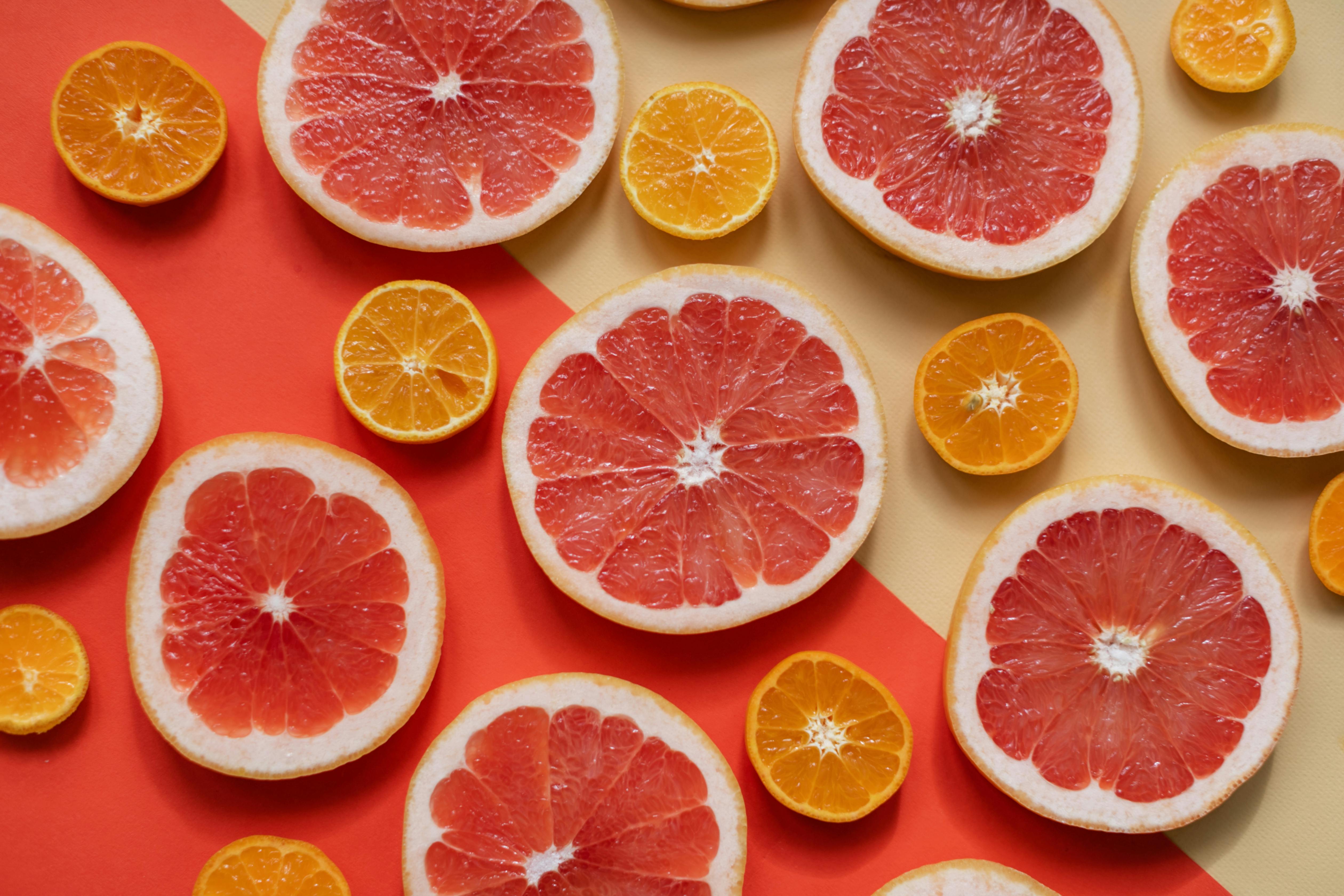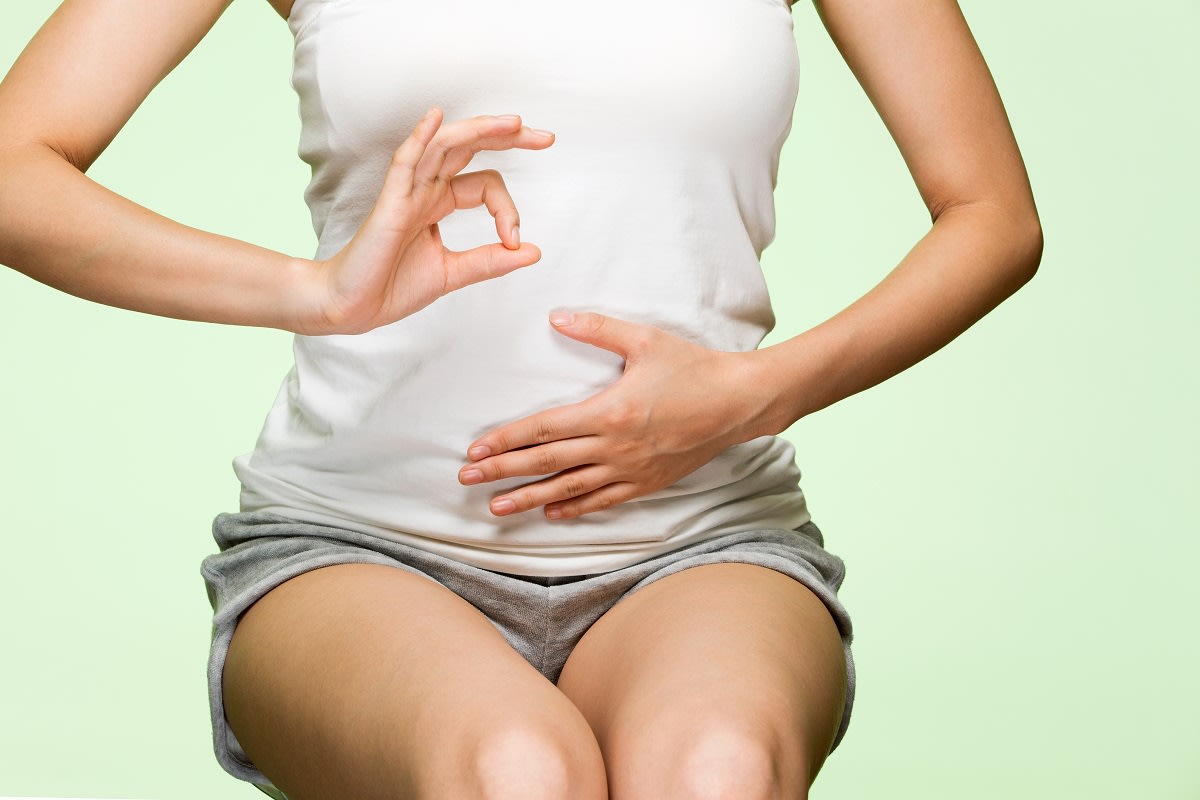At Christmas time, along with the jolly music and smell of cinnamon cookies, it’s our gut microbiome that can actually be having a tough time. All that rich food, alcohol and stressful shopping can make its mark on our microbes. Here, we show you how to best support your microbiome during the festive season.
By Lena Baumann
1. Indulge, intelligently.
 Of course, part of the fun of Christmas is enjoying a festive feast. Nevertheless, that can still include fiber. There’s no need to overload on only fatty, sugar-laden foods. There’s plenty of space too fill a good portion of your plate with fibrous food sources such as carrots, brussels sprouts and cabbage. All these can give your good gut microbes the fuel they need to keep working well, whilst you take a break. Why is this so important? Well, our gut microbes use fiber to make short-chain fatty acids (SCFAs.) These are needed by our intestinal cells for energy, and to keep your digestive environment and function intact. What’s more, you can go even further and make your centrepiece a delicious roasted cauliflower or nut roast! All that plant power will surely love you back.1
Of course, part of the fun of Christmas is enjoying a festive feast. Nevertheless, that can still include fiber. There’s no need to overload on only fatty, sugar-laden foods. There’s plenty of space too fill a good portion of your plate with fibrous food sources such as carrots, brussels sprouts and cabbage. All these can give your good gut microbes the fuel they need to keep working well, whilst you take a break. Why is this so important? Well, our gut microbes use fiber to make short-chain fatty acids (SCFAs.) These are needed by our intestinal cells for energy, and to keep your digestive environment and function intact. What’s more, you can go even further and make your centrepiece a delicious roasted cauliflower or nut roast! All that plant power will surely love you back.1
2. Dial down on drinks.
What’s a party without alcohol, some might say. Well, it’s one where laughter leads to a merry morning – without a headache or hangover. Alcohol is not only a depressant, but will dehydrate you, disturbing the water balance in your body. And that’s not all, alcohol irritates your digestive system, too. When you drink, your gut microbes have more work to do and so produce more gas, leading to your stomach feeling full, and even potentially in ache. At the same time, alcohol can increase the transit time through your digestive tract, expelling toxins and metabolites. Meaning, you may have to run to the toilet quickly. Definitely not pleasant. More drastically, long term alcohol consumption leads to dysbiosis of your microbiome. Chronic alcohol consumption has been associated with an increased abundance of Proteobacteria like Escherichia, Salmonella and Helicobacter, as shown by next generation sequencing of the stool samples of rats, as well as in humans, in a study performed by Kosnicki et al.2, 3 Furthermore, the tight junctions between your intestinal lining becomes weaker, leading to a leaky gut and consequently to increased inflammation.
Okay, there are many drawbacks, but sometimes we just need that little bit of booze. Here’s the silver lining: polyphenols in red wine have been shown to increase the abundance of beneficial bacteria (e.g. Bifidobacteria, Firmicutes) and decrease potentially harmful bacteria (e.g. Clostridium). 2-4 So sure, without making drinks a daily habit, have that glass of red wine or fancy cocktail this Christmas. But, most importantly, remember to also couple that with plenty of water. To keep your health in even higher gear, why not sip on coconut water, kombucha, or create your own flavoured mocktails?! There are so many ways to get creative.
3. You still need to sleep soundly.
We all know how it really is during Christmas time: late-night shopping, wrapping presents, and then finally partying with a Santa hat till 4am. That leaves little time to sleep. Consequently, you can experience an ever-increased appetite, fatigue and irritability, which can all negatively affect your gut microbiome. Namely, lack of sleep disturbs your circadian rhythm – your internal body clock. This in turn alters the balance of bacteria within your gut, something that was demonstrated in a recent study in mice. After 4 weeks of chronic sleep fragmentation, analysis of the mice’s faecal microbiota showed that their fermentative bacteria increased in abundance, whereas Lactobacillaceae decreased. Furthermore, their inflammatory markers increased, most likely through intestinal epithelial barrier disruption. No wonder this is something we’d all like to avoid. And the significance of sleep deprivation delves even deeper: getting less shut-eye can actually increase your risk of obesity and insulin resistance. This is especially because lack of sleep is often connected to alcohol intake and bad food choices.5, 6 So what does this mean for you? Schedule in your sleep, even during the festive season!
4. Make sure you really relax.
Don’t let the hustle of treading thr ough overcrowded shops, or cooking for a boat-load of people, steal your precious holiday days to unwind. Stress seeps down to your microbiome, too. And can even change its composition. Stress has been associated with reduced abundance of beneficial bacteria like Bifidobacteria and Lactobacillus. Luckily, there are ways to safeguard your body for incoming stress: an increased amount of Lactobacillus and other beneficial bacteria can help make you more resistant to stress, lower your cortisol and actually increase your serotonin levels. This two-way interaction was notably demonstrated in a mice study, through analysis of the effects of caspase-1 (part of the inflammasome) inhibitor.7 Additionally, to get an added boost of serotonin, choose to eat bananas, pineapple, tomatoes, spinach, kiwi and plums. These are all rich in the dietary fiber we previously mentioned, and so can not only create SCFAs, but also increase the production of serotonin – making you feel even happier! 8
ough overcrowded shops, or cooking for a boat-load of people, steal your precious holiday days to unwind. Stress seeps down to your microbiome, too. And can even change its composition. Stress has been associated with reduced abundance of beneficial bacteria like Bifidobacteria and Lactobacillus. Luckily, there are ways to safeguard your body for incoming stress: an increased amount of Lactobacillus and other beneficial bacteria can help make you more resistant to stress, lower your cortisol and actually increase your serotonin levels. This two-way interaction was notably demonstrated in a mice study, through analysis of the effects of caspase-1 (part of the inflammasome) inhibitor.7 Additionally, to get an added boost of serotonin, choose to eat bananas, pineapple, tomatoes, spinach, kiwi and plums. These are all rich in the dietary fiber we previously mentioned, and so can not only create SCFAs, but also increase the production of serotonin – making you feel even happier! 8
With that, we wish you a very Merry Christmas, and hope you’ll keep your habits in mind – it’s even more important when temptation is at its max! Let’s feel our best this festive season.
Top Tips for a Gut-Friendly Christmas:
1) Fill up on fiber-rich plant foods
2) Do some healthier food swaps
3) Eat prebiotic food to treat your microbiome
4) Limit alcohol, and make sure to hydrate with water
5) Try and maintain your normal sleep routine
6) Practice self-awareness and minimise stress for yourself
7) Feel even better tomorrow by keeping indulgences moderate
References:
- The Gut Microbiome and Food as Medicine: Healthy Microbiomes = Healthy Humans. Dexter Shurney MD, MBA, MPH, FACLM, Kaitlyn Pauly, MS, RD. American Journal of Health Promotion. 2019. 33. 821-824 https://doi.org/10.1177/0890117119845711b
- Colonic microbiome is altered in alcoholism. 2012. Mutlu EA, Gillevet PM, Rangwala H, Sikaroodi M, Naqvi A, Engen PA, Kwasny M, Lau CK, Keshavarzian A. American Journal of Physiology. Mucosal Biology. https://doi.org/10.1152/ajpgi.00380.2011
- Kosnicki, K. L., Penprase, J. C., Cintora, P., Torres, P. J., Harris, G. L., Brasser, S. M., and Kelley, S. T. ( 2019) Effects of moderate, voluntary ethanol consumption on the rat and human gut microbiome, Addiction Biology, 24, 617– 630, https://doi.org/10.1111/adb.12626.
- The interaction between smoking, alcohol and the gut microbiome. 2017. Capurso G; Lahner E. Elsevier. Best Practice and Research Clinical Gastroenterology. 31 (5). https://doi.org/10.1016/j.bpg.2017.10.006
- Poroyko, V., Carreras, A., Khalyfa, A. et al. Chronic Sleep Disruption Alters Gut Microbiota, Induces Systemic and Adipose Tissue Inflammation and Insulin Resistance in Mice. Sci Rep 6, 35405 (2016) doi:10.1038/srep35405
- Intermittent hypoxia alters gut microbiota diversity in a mouse model of sleep apnoea. Isabel Moreno-Indias, Marta Torres, Josep M. Montserrat, Lidia Sanchez-Alcoholado, Fernando Cardona, Francisco J. Tinahones, David Gozal, Valeryi A. Poroyko, Daniel Navajas, Maria I. Queipo-Ortuño, Ramon Farré. European Respiratory Journal 2015 45: 1055-1065; DOI: 10.1183/09031936.00184314
- Wong, M., Inserra, A., Lewis, M. et al. Inflammasome signaling affects anxiety- and depressive-like behavior and gut microbiome composition. Mol Psychiatry 21, 797–805 (2016) doi:10.1038/mp.2016.46
- Jane A. Foster, Linda Rinaman, John F. Cryan. Stress & the gut-brain axis: Regulation by the microbiome. Neurobiology of Stress. 7; 124-136 (2017). https://doi.org/10.1016/j.ynstr.2017.03.001.


